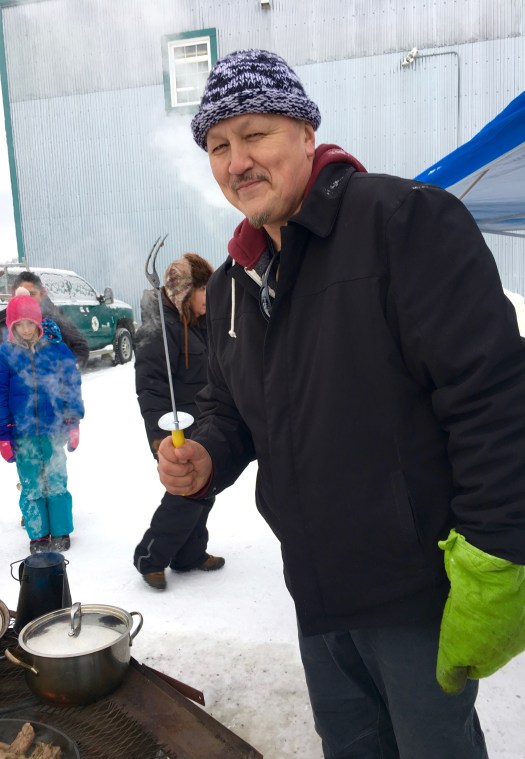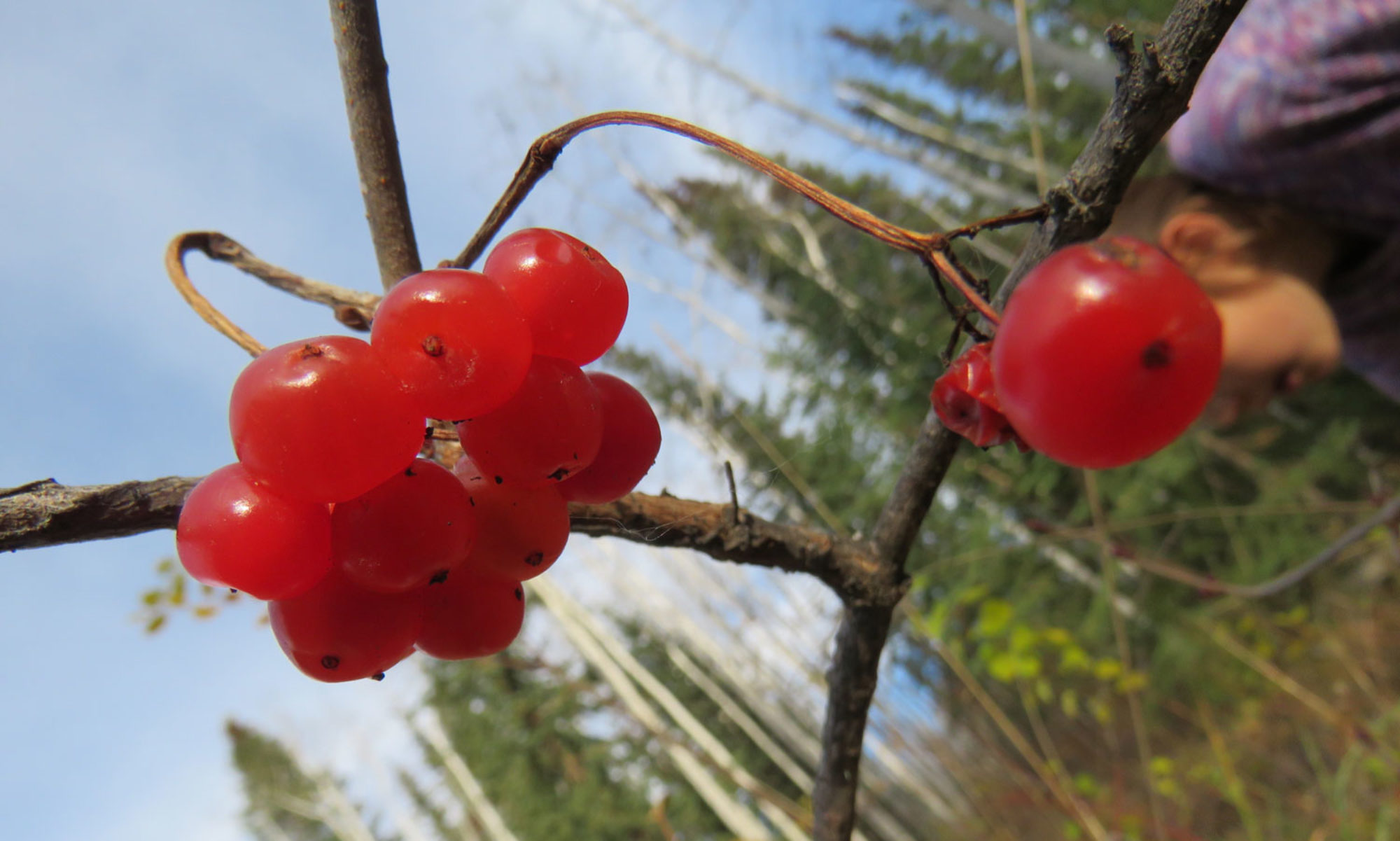
by Miche Genest
When Art Napoleon found he had to cook a selection of wild and cultivated ingredients from a local food “mystery box” over a campfire with three Indigenous Yukon Elders, he said, “Oh no! You’re going to gang up on me.” He had reason to be fearful—Tetl’it Gwich’in Elder Mary Jane Moses, Teetl’it Gwich’in Elder Dorothy Alexie, and Tr’ondëk Hwëch’in Elder Peggy Kormandy are all experienced campfire cooks with many years of cooking on the land behind them.But as participants at “Our Camp is our Kitchen” learned, when it comes to campfire cooking Napoleon is no slouch. He and the ladies transformed the ptarmigan, rabbit, caribou guts, caribou meat, sheep ribs, wild rhubarb, cranberries, birch syrup and a host of other delicacies into soup, stew, fricassee, viande grillée and pudding that fed anywhere from 75 to 100 people. Their cooking fire burned in an galvanized metal drum with a grill set over top; their camp was a wall tent and a tarp shelter in the parking lot beside the Tr’ondëk Hwëch’in Community Hall.

As Napoleon told the audience Monday night, he juggles several careers–singer-songwriter, educator, conservationist, naturalist. He holds an MA in Language Revitalization from the University of Victoria and is a former Chief of the Saulteau First Nation in north-eastern BC. Most recently, he’s co-host of APTN’s Moosemeat and Marmalade with British chef Dan Hayes — an exploration of two very different approaches to cooking wild game, the Indigenous and the classically trained.
Food and cooking are the sinews that tie much of Napoleon’s life and work together. He first learned how to cook on open fires and woodstoves as a child living in Peace River country, and later grew comfortable in modern cooking facilities. He has always loved cooking for people, and one of his approaches to cooking traditional food is to “gourmet it up.” “It’s given me great pleasure to serve good food to people, especially if I can present traditional food in ways that people haven’t tasted,” he said. “If you want to show the beauty of your culture, food is one way to do that.”

Napoleon, who lives in Victoria, advised people on how to “Indigenize their diet” in an urban context. In his talk on food, nutrition and planning on Wednesday morning he reminded the audience, “If you live in the city there’s lots of ways you can still access your traditional resources.” He goes back to his traditional territory to hunt; he receives packages of wild food from his family; he learns what wild foods grow in his area and goes out foraging.
“I can still be an Indian down there, I don’t have to be a Victorian.” Napoleon also suggested ways of incorporating better nutrition into modern diets, noting that on the land, “People ate clean and they were very active. They were in great shape. Our meats were the original free range organic meats.” Today, he said, “The food industry sucks. It’s all about the money. You’ve got to make it all about health, and make your own choices.”
The reality is that Indigenous people live in two worlds, he added, and even hunters supplement their traditional diet with store-bought foods. “They’ve just become part of the culture.” He laughed. “Red Rose tea is part of the culture!” He admires Suzanne for her efforts to eat only local food for a year, calling her endeavour “either crazy or brave, and maybe a little bit of both. I think it’s a lot of work, and would take great, great discipline.”
But he shares one of Suzanne’s concerns, mentioned in her presentation on Tuesday evening: how sustainable is her diet? Napoleon asked, “If everybody wanted to do it…would things get over-harvested? What kind of impact would it have on the land? Long ago people managed it in a way that was sustainable, but now there are bigger populations.”
These are questions shared and pondered across Canada and around the world: how do we feed ourselves in a sustainable manner? When the population will potentially reach 9.7 billion by 2050? As Indigenous people who live in two cultures, Napoleon said, “There’s no way we can survive as an island. That’s the great thing about the Yukon–the divide is not so wide as it is in Southern Canada.”
He ended his Wednesday morning talk on an emotional note. “You guys are lucky,” he said, near tears. “You guys who are living in territories that are bringing [the traditions] back.” Napoleon said he always likes to contribute food for thought in his work. Asked what he would like people to take away from his participation at Myth and Medium, he reflected for a minute and said, “The need for balance. Always remembering that we walk in two worlds, and there’s ways to return to your cultural integrity while still living in these modern times.”

